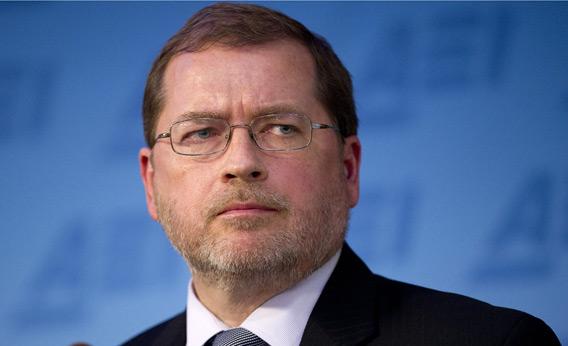courtesy of the Associated Press:
WASHINGTON (AP) — John Boehner is a bloodied House speaker following the startling setback that his own fractious Republican troops dealt him in their “fiscal cliff” struggle against President Barack Obama.
There’s plenty of internal grumbling about the Ohio Republican, especially among conservatives, and lots of buzzing about whether his leadership post is in jeopardy. But it’s uncertain whether any other House Republican has the broad appeal to seize the job from Boehner or whether his embarrassing inability to pass his own bill preventing tax increases on everyone but millionaires is enough to topple him.
“No one will be challenging John Boehner as speaker,” predicted John Feehery, a consultant and former aide to House GOP leaders. “No one else can right now do the job of bringing everyone together” and unifying House Republicans.
The morning after he yanked the tax-cutting bill from the House floor to prevent certain defeat, Boehner told reporters he wasn’t worried about losing his job when the new Congress convenes Jan. 3.
“They weren’t taking that out on me,” he said Friday of rank-and-file GOP lawmakers, who despite pleading from Boehner and his lieutenants were shy of providing the 217 votes needed for passage. “They were dealing with the perception that somebody might accuse them of raising taxes.”
That “somebody” was a number of outside conservative groups such as the Club for Growth and Heritage Action for America, which openly pressured lawmakers to reject Boehner’s bill. Such organizations often oppose GOP lawmakers they consider too moderate and have been headaches for Boehner in the past.
This time, his retreat on the tax measure was an unmistakable blow to the clout of the 22-year House veteran known for an amiable style, a willingness to make deals and a perpetual tan.
Congressional leaders amass power partly by their ability to command votes, especially in showdowns. His failure to do so Thursday stands to weaken his muscle with Obama and among House Republicans.
“It’s very hard for him to negotiate now,” said Sarah Binder, a George Washington University political scientist, adding that it’s premature to judge if Boehner’s hold on the speakership is in peril. “No one can trust him because it’s very hard for him to produce votes.”
She said the loss weakens his ability to summon support in the future because “you know the last time he came to you like this, others didn’t step in line.”
Boehner, 63, faces unvarnished hostility from some conservatives.
“We clearly can’t have a speaker operate well outside” what Republicans want to do, said freshman Rep. Tim Huelskamp, R-Kan.
Huelskamp is one of four GOP lawmakers who lost prized committee assignments following previous clashes with party leaders. That punishment was an anomaly for Boehner, who is known more for friendly persuasion than arm-twisting.
He said Boehner’s job would depend on whether the speaker is “willing to sit and listen to Republicans first, or march off” and negotiate with Obama.
Conservative Rep. Steve King, R-Iowa, said one of the tea party’s lasting impacts would be if Boehner struggled to retain his speakership due to the fight over the fiscal cliff, which is the combination of deep tax increases and spending cuts that start in early January without a bipartisan deal to avert them.
“If there’s a major defeat delivered here, it could make it tough on him,” King said. “He’s in a tough spot.”
Defenders say Boehner has been dealt a difficult hand. They say that in nearly two years as speaker, he’s been field general over an unruly GOP majority confronting a Democratic president and Senate, steering them to the best outcomes possible.
House Republicans won some spending cuts early on. But they were faulted by the public for nearly causing a federal default in a 2011 fight over extending the government’s debt limit, and lost a later battle over renewing a payroll tax cut.
This year, they’ve suffered in the polls for resisting the extension of wide-ranging tax cuts unless the wealthiest earners were included, which Obama opposes. They saw their House majority whittled by eight seats in last month’s elections.
“He’s doing a good job in a tough situation,” said Sen. Rob Portman, R-Ohio, a Boehner friend. He said the speaker’s challenges include “independent individuals” among House Republicans and the increased willingness of outside conservatives to pressure GOP leaders, not defer to them.
Portman said he didn’t know if Boehner’s tax bill debacle would weaken him.
“It proved to the president what he’s been saying, that there are limits to how far he can go” in making concessions in fiscal cliff bargaining, said Portman. “But a win would have improved chances for an agreement” by demonstrating that Boehner could deliver votes.
“His own Republican team let him down and that always hurts a leader,” said veteran Rep. Jack Kingston, R-Ga.
Republicans watching closely for overt or subtle moves by would-be challengers to Boehner said Friday they’d detected none, though such moves are notoriously secretive.
The entire House elects its speaker by majority vote on the first day of the new session. Because the 201 Democrats will probably all back Rep. Nancy Pelosi, D-Calif., for the job, a GOP effort to depose Boehner would have to occur internally and before the full House votes so Republicans – with 234 seats – elect one of their own as speaker.
Possible candidates to replace Boehner, according to GOP lawmakers and aides, include Majority Leader Eric Cantor of Virginia, third-ranking Rep. Kevin McCarthy of California, GOP vice presidential nominee Paul Ryan, R-Wis., and Rep. Tom Price of Georgia.
Cantor was at Boehner’s side Friday as both men met with reporters. Cantor, McCarthy and Ryan lobbied colleagues for Boehner’s tax-cut bill, giving Republicans angry over the measure little reason to turn to them as alternatives.
“I recognize why these questions are getting asked,” conservative freshman Rep. Mick Mulvaney, R-S.C., said about whether Boehner was in trouble. “I see nothing giving any evidence to that end. It was not a vote of no confidence on John Boehner. It was a legislative defeat, not a personal defeat.”
— Jackson Williams.







 While Congress and the media obsess over the “fiscal cliff,” there is a growing dissent amongst some politicians and economists as to how the issue is being labeled. More appropriate terms, critics of the “fiscal cliff” argue, may include: “fiscal slope,” “gradual fiscal slope,” “fiscal curve,” “taxmageddon,” and “austerity crisis.” These alternatives attempt to reflect the idea that the fiscal cliff, a series of mandatory budget cuts and tax hikes that kick-in at the end of the year, is not quite the doomsday that falling off a cliff implies.
While Congress and the media obsess over the “fiscal cliff,” there is a growing dissent amongst some politicians and economists as to how the issue is being labeled. More appropriate terms, critics of the “fiscal cliff” argue, may include: “fiscal slope,” “gradual fiscal slope,” “fiscal curve,” “taxmageddon,” and “austerity crisis.” These alternatives attempt to reflect the idea that the fiscal cliff, a series of mandatory budget cuts and tax hikes that kick-in at the end of the year, is not quite the doomsday that falling off a cliff implies.



